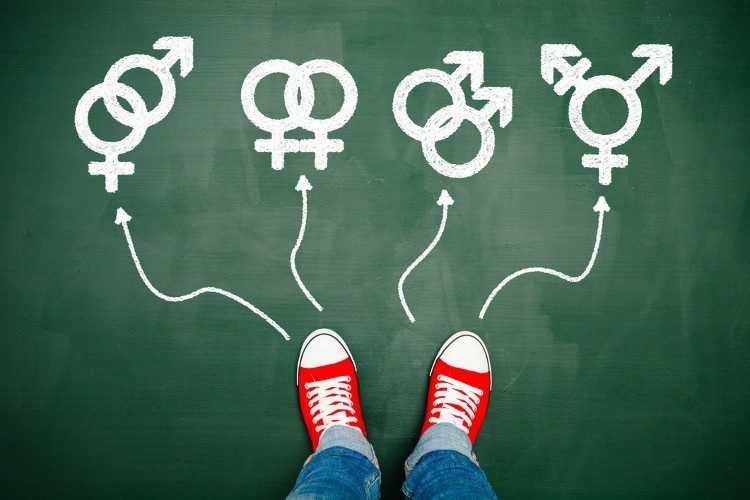
While the news media, social media, Hollywood, public schools, and progressive politicians push the notion that “transitioning” children with gender dysphoria is the best way to resolve their confusion, the truth is that the literature on the subject supports no such conclusion. In fact, says the American College of Pediatricians (ACPeds), most scientifically sound studies suggest that so-called “gender-affirming therapy” (GAT) is either useless or downright dangerous.
After reviewing more than 60 studies on GAT and related topics, ACPeds concluded that “there are no long-term studies demonstrating benefits nor studies evaluating risks associated with the medical and surgical interventions provided to … adolescents.” Furthermore, “There is no long-term evidence that mental health concerns are decreased or alleviated after [GAT].”
Although most major U.S. medical organizations have climbed aboard the trans express, ACPeds “affirms the medical fact that the sex of an individual is based upon biology and not upon thoughts or feelings. The individual’s sex is encrypted in every diploid cell of the body. Since an individual’s biological sex is immutable from the moment of fertilization, it cannot be changed, regardless of hormonal or surgical interventions.” The group thus takes issue with the terms “transgender,” “transition,” and “sex assigned at birth.”
“In addition,” wrote the organization, “ACPeds is very concerned that parents, along with health care and educational professionals, who support the transgender ‘transition’ of children and adolescents are, in fact, contributing to increased depression by appearing to validate to the children that ‘something is wrong with their body and biological sex.’”
Mental-health problems such as depression, anxiety, and suicidal ideation are quite common among all non-heterosexual youth, so “as the proportion of adolescents who identify as heterosexual decreases, the incidence of mental health issues increases,” noted ACPeds. Moreover, “those with gender dysphoria or transgender identities have higher rates of mental health concerns than other LGBTQ+ identifying adolescents.” This is confirmed by multiple studies including one from Austria finding that over half of adolescents seeking GAT had at least one psychiatric diagnosis. Another study determined that “transgender and gender-diverse individuals have, on average, higher rates of autism [and] other neurodevelopmental and psychiatric diagnoses.”
“Many parents are specifically told that if they do not accept their children’s gender identity via social transition, medical treatment, and surgical operations, they risk losing their children to suicide,” penned ACPeds. In reality, “the very high rates of suicide attempts by those identifying as transgender cannot be substantiated.” Certainly their rate is higher than that of “cisgenders,” but it is similar to the rate for other LGBs and, among teenagers, is actually lower than that of their peers with anorexia nervosa or depression.
It would appear, then, that gender dysphoria is a symptom of underlying mental-health issues which themselves are often the result of adverse childhood experiences (ACEs) such as exposure to domestic violence; substance abuse; and physical, emotional, or sexual abuse. An online survey of 3,508 LGBTQ+ adolescents revealed that most had experienced multiple ACEs. A 2019 University of Texas study found that “transgender participants reported emotional abuse, physical neglect, and emotional neglect more frequently compared to cisgender LGB people” and that trans participants “were more than twice as likely to state they were in poor mental health.” More than one study found that a significant majority of transgenders had psychiatric disorders or suicidal thoughts before deciding they were the wrong gender.
Given all this, are social and medical “transitions” really the best way to help gender-dysphoric kids?
Answering that question scientifically is difficult because “most of the research attempting to” do so “is severely flawed,” contended ACPeds. Among the problems: small sample sizes, extremely short follow-up durations, and studies involving individuals who transitioned as adults rather than as children. The relatively few good studies are often inconclusive.
Social transitioning — referring to a child by a new name or pronouns or otherwise treating him as a member of the opposite sex — has never been shown to be beneficial to a child. But it does tend to lock a child into his new identity, which he would otherwise likely abandon in puberty.
Puberty blockers, cross-sex hormones, and sex-reassignment surgery, likewise, have demonstrated no benefits but plenty of risks. Most existing studies on puberty blockers lack control groups, rendering their conclusions meaningless. Studies of individuals receiving cross-sex hormones have been similarly uncertain, though some valid studies found that such patients’ mental health either remained the same or worsened; one study, from Great Britain’s National Health Service, warned, “Any potential benefits of gender-affirming hormones must be weighed against the largely unknown long-term safety profile of these treatments in children and adolescents with gender dysphoria.” And a Swedish study on sex-change-surgery patients found that their mortality rate, particularly from suicide, was considerably higher than that of the general population.
The lack of scientific evidence in favor of GAT, coupled with the still-unknown dangers it poses for children, has led several European countries to reverse course on such matters. Britain, Sweden, Finland, Norway, and France have all retreated, to one degree or another, from giving minors drugs or surgery to alter their genders.
ACPeds obviously hopes the United States will follow suit. “ACPeds cannot condone the social affirmation, medical intervention, or surgical mutilation of children and adolescents identifying as transgender or gender nonconforming,” the group declared. “Rather, intensive psychotherapy for the individual and family to determine and hopefully treat the underlying etiology [cause] of their gender incongruence should be pursued.”

